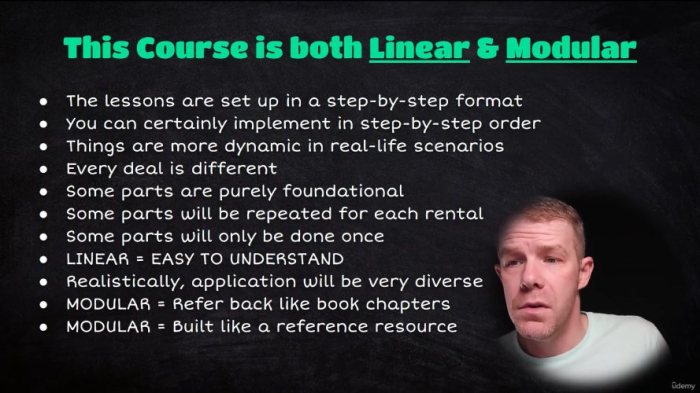Find the Best Place to Invest in Rental Property

Finding the best place to invest in rental property requires a strategic approach, considering factors that influence rental demand and property values. This guide will delve into key considerations for making informed decisions about where to invest your money.
From analyzing market trends and evaluating property types to understanding financial considerations and legal requirements, this comprehensive guide will equip you with the knowledge and tools to navigate the world of rental property investment. Whether you’re a seasoned investor or just starting out, understanding the intricacies of choosing the right location is paramount to achieving success.
Factors to Consider When Choosing a Location

Choosing the right location is paramount when investing in rental property. It sets the stage for your investment’s success, influencing rental demand, occupancy rates, and ultimately, your return on investment.
Economic Indicators Influencing Rental Demand
Understanding the economic landscape of a potential location is crucial. Key indicators provide insights into the area’s economic health and its impact on rental demand.
- Unemployment Rate: A low unemployment rate indicates a strong job market, leading to higher demand for housing, including rentals. Conversely, a high unemployment rate may signal a weakening economy, potentially impacting rental demand.
- Average Income: Areas with higher average incomes generally have a greater ability to afford higher rents. This can be a good indicator of potential rental income and market stability.
- Economic Growth: A growing economy often translates to job creation and increased demand for housing. Look for areas with thriving industries, attracting new businesses and residents.
- Cost of Living: Consider the overall cost of living in the area, including housing, utilities, and transportation. A higher cost of living may limit the pool of potential tenants, influencing rental rates.
Impact of Job Market, Population Growth, and Amenities
These factors directly influence rental demand and property values.
- Job Market: A strong job market attracts new residents, boosting demand for housing. Consider areas with diverse industries and a healthy employment rate.
- Population Growth: Areas experiencing population growth often see increased demand for housing, including rentals. This can lead to higher occupancy rates and potential appreciation in property values.
- Local Amenities: Desirable amenities like parks, schools, shopping centers, and entertainment options attract residents and contribute to a higher quality of life, boosting rental demand.
Urban vs. Suburban Investing
Both urban and suburban areas offer unique opportunities and challenges for rental property investors.
- Urban Areas:
- Pros: Higher rental rates, greater population density, access to public transportation, and diverse amenities.
- Cons: Higher property prices, potential for higher crime rates, and limited parking options.
- Suburban Areas:
- Pros: Lower property prices, generally lower crime rates, access to parks and green spaces, and family-friendly environments.
- Cons: Lower rental rates, dependence on car transportation, and potentially limited access to certain amenities.
Importance of Local Regulations and Property Taxes
Understanding local regulations and property taxes is essential for responsible investment.
- Building Codes and Zoning Laws: These regulations impact what you can build or renovate on your property. Research the specific requirements before purchasing a property.
- Property Taxes: Property taxes can vary significantly between areas. Calculate the annual property tax cost and factor it into your investment projections.
- Rental Regulations: Local ordinances may regulate aspects like tenant screening, rent increases, and eviction procedures. Familiarize yourself with these regulations to ensure compliance.
Factors Impacting Rental Demand
| Factor | Importance | Impact on Rental Demand | Example |
|---|---|---|---|
| Job Market | High | Strong job market attracts residents, increasing demand for housing | A city with a thriving tech industry may experience higher rental demand due to the influx of skilled workers. |
| Population Growth | High | Growing population leads to increased demand for housing, including rentals | A rapidly growing suburb may see a surge in rental demand as new families move in. |
| Local Amenities | Moderate | Desirable amenities attract residents, boosting demand for housing | A neighborhood with excellent schools, parks, and shopping centers may be more attractive to families, leading to higher rental demand. |
| Cost of Living | High | Higher cost of living can limit potential tenants, impacting rental rates | A city with a high cost of living may see lower rental demand as some potential tenants are priced out of the market. |
Evaluating Property Types

When selecting a rental property, choosing the right type is crucial. Different property types offer varying advantages and disadvantages in terms of investment potential, maintenance costs, tenant demographics, and potential returns. Understanding these factors is essential for making an informed decision.
Single-Family Homes
Single-family homes are often considered a good entry point for real estate investors.
- Advantages: Single-family homes provide a sense of privacy and independence, which appeals to many tenants. They are generally easier to manage than larger properties and offer the potential for appreciation.
- Disadvantages: Single-family homes may require more maintenance than multi-family units, and the potential for rental income is limited to one tenant.
- Target Tenant: Single-family homes are typically attractive to families, young professionals, and individuals seeking a private and independent living space.
Multi-Family Units
Multi-family units, such as duplexes, triplexes, and apartment buildings, offer the potential for higher rental income and diversification.
- Advantages: Multi-family units can generate greater rental income, allowing for potential economies of scale. They also offer the opportunity to attract a wider range of tenants.
- Disadvantages: Multi-family units require more complex management, and the potential for higher maintenance costs.
- Target Tenant: Multi-family units are typically attractive to a broader range of tenants, including families, young professionals, students, and individuals seeking affordable housing options.
Commercial Properties
Commercial properties, such as retail stores, office buildings, and industrial spaces, offer the potential for higher returns and long-term stability.
- Advantages: Commercial properties can generate significant rental income and offer the potential for long-term leases. They also provide opportunities for appreciation and tax benefits.
- Disadvantages: Commercial properties require more specialized knowledge and expertise to manage. They are also susceptible to economic downturns and changes in market demand.
- Target Tenant: Commercial properties are typically targeted towards businesses, organizations, and institutions seeking space for their operations.
New Construction vs. Existing Properties
Choosing between new construction and existing properties involves weighing various factors.
- New Construction: New construction properties offer modern amenities and energy efficiency, but they may be more expensive and require longer construction timelines.
- Existing Properties: Existing properties are typically more affordable and readily available, but they may require renovations and updates.
Comparing Property Types
| Property Type | Advantages | Disadvantages | Target Tenant |
|---|---|---|---|
| Single-Family Home | Privacy, independence, easier management, potential for appreciation. | Higher maintenance costs, limited rental income. | Families, young professionals, individuals seeking privacy. |
| Multi-Family Unit | Higher rental income, diversification, broader tenant pool. | Complex management, higher maintenance costs. | Families, young professionals, students, individuals seeking affordable housing. |
| Commercial Property | Significant rental income, long-term leases, appreciation potential, tax benefits. | Specialized knowledge required, susceptibility to economic downturns. | Businesses, organizations, institutions seeking space for operations. |
Financial Considerations
Securing financing and calculating return on investment (ROI) are crucial aspects of any real estate investment, particularly when it comes to rental properties. Understanding the financial implications, exploring mortgage options, and identifying potential expenses can help you make informed decisions and maximize your profitability.
Securing Financing and Calculating ROI
Securing financing is essential for most rental property investments. A mortgage loan allows you to leverage your capital, acquiring a property with a down payment significantly less than the total purchase price. Calculating ROI helps you assess the profitability of your investment. It’s a metric that measures the return you can expect from your investment relative to the cost.
ROI = (Annual Rental Income – Annual Expenses) / Total Investment Cost
Mortgage Options and Their Impact
Different mortgage options offer varying interest rates, loan terms, and monthly payments, impacting your overall profitability.
- Conventional Mortgages: These are standard mortgages offered by banks and credit unions. They often come with lower interest rates but may require a larger down payment.
- FHA Loans: These are government-insured mortgages designed for first-time homebuyers and those with lower credit scores. They typically have lower down payment requirements but may come with higher interest rates and mortgage insurance premiums.
- VA Loans: These are mortgages guaranteed by the Department of Veterans Affairs, offering benefits to veterans, active-duty military personnel, and surviving spouses. They often have no down payment requirements and lower interest rates.
Potential Expenses Associated with Owning and Managing Rental Properties, Best place to invest in rental property
Owning and managing a rental property involves various expenses, impacting your overall profitability. These expenses can be categorized as follows:
| Expense Category | Example Costs | Impact on ROI | Tips for Minimizing Costs |
|---|---|---|---|
| Mortgage Payments | Principal and interest payments, property taxes, insurance | Reduces net income, lowering ROI | Negotiate a lower interest rate, consider a shorter loan term |
| Maintenance and Repairs | Plumbing, electrical, HVAC, landscaping, appliance repairs | Reduces net income, lowering ROI | Establish a maintenance reserve fund, perform regular inspections, and address issues promptly |
| Property Management Fees | Fees for marketing, tenant screening, rent collection, and property maintenance | Reduces net income, lowering ROI | Consider self-management or hire a property manager with competitive rates |
| Vacancy Costs | Lost rental income during periods when the property is vacant | Reduces net income, lowering ROI | Market your property effectively, screen tenants thoroughly, and offer competitive rental rates |
| Insurance | Property insurance, liability insurance | Reduces net income, lowering ROI | Shop around for competitive insurance rates, consider bundling policies |
| Utilities | Water, sewer, gas, electricity | Reduces net income, lowering ROI | Encourage tenants to use utilities efficiently, consider energy-efficient upgrades |
| Legal and Accounting | Legal fees for lease agreements, accounting services for tax preparation | Reduces net income, lowering ROI | Seek legal advice from experienced real estate attorneys, use online accounting software |
Property Management Strategies: Best Place To Invest In Rental Property
Effective property management is crucial for maximizing your rental income and minimizing headaches. It involves finding reliable tenants, maintaining your property, and handling any issues that arise. Here’s a breakdown of essential strategies to consider:
Finding and Screening Tenants
The process of finding and screening tenants is critical to ensuring a positive rental experience. You want to attract responsible individuals who will pay rent on time and take good care of your property.
Choosing the best place to invest in rental property depends on many factors, like local market trends, property values, and potential rental income. If you’re unsure where to start, consider seeking guidance from an outsourced chief investment officer. They can provide expert advice on market analysis, property selection, and financial strategies to maximize your returns. By leveraging their expertise, you can make informed decisions and find the perfect spot for your rental property investment.
- Utilize Online Rental Platforms: Platforms like Zillow, Apartments.com, and Craigslist allow you to reach a wide audience of potential renters.
- Screen Thoroughly: Conduct background checks, verify employment and income, and review credit reports. This helps you identify potential red flags.
- Use a Rental Application: A standardized application helps gather essential information from applicants and ensures consistency in the screening process.
- Conduct Interviews: In-person interviews allow you to assess applicants’ personality, communication skills, and understanding of rental responsibilities.
- Check References: Contact previous landlords or employers to gain insights into the applicant’s rental history and work ethic.
Property Management Options
Deciding how to manage your rental property depends on your time commitment, expertise, and comfort level.
Determining the best place to invest in rental property depends on many factors, including market trends, local regulations, and your own investment goals. If you’re seeking guidance on navigating the complexities of real estate investment, matthews real estate investment services can provide valuable insights and support. They offer a comprehensive range of services, from property analysis to market research, helping you make informed decisions for a successful rental property investment.
- Self-Management: This option gives you complete control over your property but requires significant time and effort. You’ll handle tenant screening, lease agreements, maintenance, rent collection, and resolving tenant issues.
- Hiring a Professional Property Manager: A property management company can handle all aspects of rental property management, including marketing, tenant screening, rent collection, maintenance, and legal compliance. This option can free up your time but comes with a fee.
- Hybrid Approach: You can choose to handle some tasks yourself, such as marketing and tenant screening, while hiring a professional for other responsibilities, like maintenance and rent collection.
Establishing Clear Lease Agreements
A well-written lease agreement protects both you and your tenants by outlining the terms of the rental agreement. It should be clear, concise, and legally sound.
Choosing the best place to invest in rental property can be a daunting task, requiring careful consideration of factors like market trends, local regulations, and potential tenant demographics. For those seeking guidance and insights, the Jim Cramer Investment Club might offer valuable perspectives on the current real estate market. Ultimately, the ideal location for a rental property investment depends on individual goals and risk tolerance, but leveraging resources like the Jim Cramer Investment Club can provide valuable insights to inform your decision-making process.
- Include Essential Clauses: The lease should clearly define the rental period, rent amount, payment schedule, tenant responsibilities (e.g., maintenance, utilities), and termination procedures.
- Address Pets and Smoking: State your policy on pets and smoking to avoid potential disputes.
- Specify Security Deposit: Clearly Artikel the purpose and amount of the security deposit, as well as the process for its return.
- Consider Legal Advice: Consult with a real estate attorney to ensure your lease agreement complies with local laws and regulations.
Handling Tenant Issues
Promptly addressing tenant issues is essential for maintaining a positive landlord-tenant relationship. It can also help prevent minor problems from escalating into major disputes.
Choosing the best place to invest in rental property often depends on local market conditions and your investment goals. If you’re looking for broader investment opportunities, you might want to consider exploring other avenues like business investment opportunities , which can offer different growth potential and diversification. However, rental property investments can still provide a steady stream of income and potential appreciation over time, making them a worthwhile consideration for many investors.
- Establish Clear Communication Channels: Encourage tenants to contact you promptly for any issues, and respond to their concerns in a timely and professional manner.
- Respond to Maintenance Requests: Address maintenance requests promptly to avoid further damage or inconvenience to tenants.
- Follow Eviction Procedures: If a tenant fails to pay rent or violates the lease agreement, follow the proper legal eviction procedures.
- Document All Interactions: Keep detailed records of all communications, maintenance requests, and rent payments to protect yourself in case of disputes.
Essential Tasks for Managing Rental Properties
Managing a rental property involves a variety of ongoing tasks. Here’s a checklist to help you stay organized:
- Marketing and Tenant Screening: Continuously market your property to attract new tenants and screen applicants thoroughly.
- Lease Management: Ensure lease agreements are current and compliant with local regulations.
- Rent Collection: Establish a system for collecting rent on time and efficiently.
- Property Maintenance: Perform routine inspections, address maintenance requests promptly, and handle any necessary repairs.
- Financial Management: Track income and expenses, pay property taxes, and manage insurance.
- Legal Compliance: Stay informed about local laws and regulations related to rental properties.
Legal and Regulatory Considerations

Navigating the legal and regulatory landscape is crucial for successful rental property investment. Understanding and complying with local laws and regulations ensure smooth operations, minimize legal risks, and protect your investment.
Local Building Codes and Zoning Ordinances
Local building codes and zoning ordinances dictate how properties can be constructed, maintained, and used. They encompass various aspects, including:
- Construction Standards: Building codes specify minimum requirements for construction materials, structural integrity, electrical wiring, plumbing, and fire safety.
- Occupancy Limits: Zoning ordinances define the permissible number of occupants for a property based on its size and type.
- Land Use Restrictions: These regulations determine what types of activities are allowed on a particular piece of land, such as residential, commercial, or industrial.
Failure to comply with building codes and zoning ordinances can result in fines, legal disputes, and even the forced closure of your property.
Obtaining Necessary Permits and Licenses
Before renting out a property, you must obtain the necessary permits and licenses, which vary depending on the location and type of property.
- Rental License: Some cities and counties require landlords to obtain a rental license, which typically involves an inspection of the property to ensure it meets basic safety and habitability standards.
- Business License: If you are operating a rental business, you may need to obtain a business license, which can involve registration with the state or local government.
- Occupancy Permits: Depending on the type of property and local regulations, you may need to obtain an occupancy permit, which verifies that the property is safe and suitable for habitation.
Navigating Legal and Regulatory Processes
Investing in rental property can be a rewarding endeavor, offering potential for passive income and long-term wealth building. By carefully considering the factors Artikeld in this guide, you can increase your chances of finding the best place to invest and maximizing your returns. Remember, thorough research, strategic planning, and sound financial management are essential for navigating the complexities of this investment landscape.
Essential FAQs
What are the most important factors to consider when choosing a rental property location?
The most important factors include job market strength, population growth, local amenities, rental demand, property taxes, and regulations.
How do I determine the potential return on investment (ROI) for a rental property?
Calculate your estimated rental income, subtract expenses like mortgage payments, property taxes, and maintenance costs, and divide the result by the initial investment. This will give you an approximate ROI.
What are some tips for finding reliable tenants?
Thoroughly screen applicants, verify their income and credit history, and conduct background checks. Also, consider requiring a security deposit and establishing clear lease terms.









